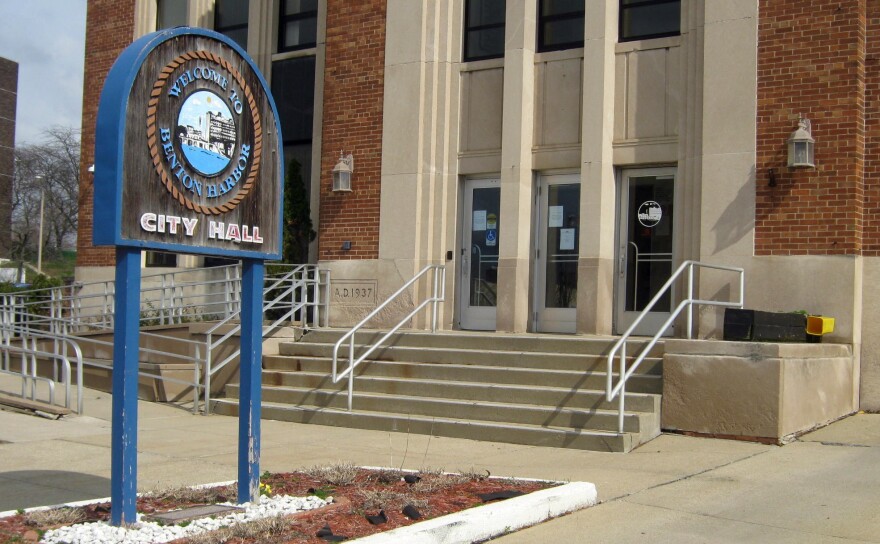Note: Bottled water is available for the residents of Benton Harbor. For a list of distribution sites and times, click here or call 2-1-1.
Federal and state regulators have ordered the city of Benton Harbor to make changes to its water system after an inspection found dozens of violations.
Tests have repeatedly shown elevated levels of lead in the city’s drinking water, going back to 2018.
“The people of Benton Harbor have suffered for too long,” said EPA administrator Michael Regan, in a statement announcing the new actions. “Exposure to lead in children can cause irreversible and life-long health effects, including decreasing IQ, focus, and academic achievement. The water infrastructure in Benton Harbor, like many cities across the country, needs upgrades and investments to build resiliency and protect people from lead.”
Federal and state regulators inspected the Benton Harbor water plant and interviewed staff over the course of four days in September and October, according to a report issued by the Michigan Department of Environment, Great Lakes and Energy, which was obtained by Michigan Radio. That report concluded: “The City lacks the Technical, Managerial, and Financial (TMF) capacity necessary to support the water utility."
The report catalogued a series of three dozen “deficiencies” in the city’s management of the drinking water supply, from crumbling concrete on a water reservoir, to broken filters, to poor record keeping.
In addition, the state listed 133 addresses in the city that were either known, or suspected, to have lead service lines for their drinking water supply. These lead pipes could increase the risk of lead exposure, and the state requires cities to notify people when it finds out about lead service lines. Despite that requirement, the EGLE report says there’s no evidence the city of Benton Harbor ever notified the residents at the 133 addresses listed.
The report also found that the water system doesn’t generate enough money to cover the costs of operation and maintenance. And it’s not clear how the city can generate new money without making water unaffordable for residents.
“A demonstration of the financial capability of the water system to operate sustainably and in compliance is needed to restore financial capacity,” the EGLE report says.
Overall, the EGLE report lists 12 “significant deficiencies” and 24 “minor deficiencies” in Benton Harbor’s water system.
Both the EPA and EGLE are requiring the city to take action to fix the deficiencies.
The EPA order lists required actions under eight categories of violations. EGLE lists 19 “required actions” it says the city must take within 120 days.
“Today’s action is not intended as a punitive exercise, but rather a transparent way of identifying the pressing needs of the Benton Harbor community so that federal, state, local and community partners can work together to prioritize them as we continue our work to ensure all Benton Harbor residents have access to safe drinking water,” said Scott Dean, a spokesperson for EGLE, in an email to Michigan Radio. “EGLE will continue to work to assist residents with both the system problems evident at the facility, and more pressingly, the current lead issue that is, appropriately, the immediate focus of our resources.”
The state continues to give out bottled water to Benton Harbor residents. A list of distribution sites is available here.



